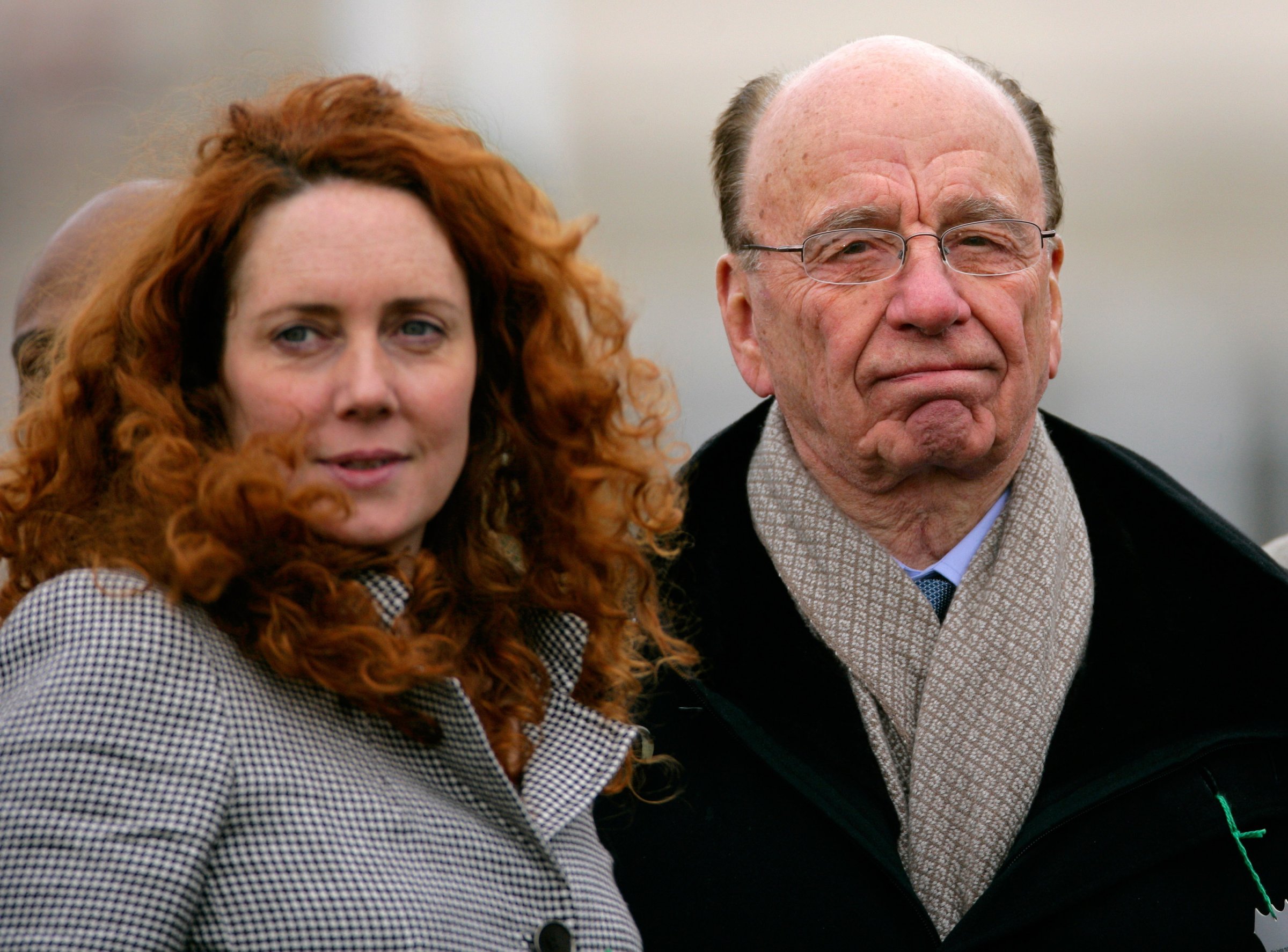
The acquittal of Rebekah Brooks and five co-defendants at Britain’s epic phone hacking trial this week was an important victory for Rupert Murdoch. If his most effervescent editor had been jailed for plotting to snoop, bribe officials and hide evidence, it would have been a deeply personal blow for the tycoon. Murdoch is so fond of the red-headed Brooks that when TV crews chased the pair across London in the tumult of July 2011, he declared her to be his “priority.” But the hacking saga – which has already cost the 83-year-old a Sunday newspaper, a $12 billion TV takeover and some humility — could be entering its most toxic chapter yet for the veteran newsman.
Investigators in the United Kingdom and the United States are circling the business he propelled to global dominance over seven decades. Just today, The Guardian, bastion of England’s liberal elite, reported that Scotland Yard has notified Murdoch that detectives want to interview him. The interview would be “under caution”: Murdoch himself has become a hacking suspect. In the U.S., the FBI has been eyeing the London force’s corruption inquiry into Murdoch’s UK newspapers to determine whether News Corp could be charged under the Foreign Corrupt Practices Act (FCPA), which bans American businesses from bribing public officials abroad.
How much of this is a problem for a tycoon who has negotiated many a legal obstacle in the past? The central allegation at the hacking trial was that senior management knew about the nefarious behavior of Murdoch’s sex-and-scandal tabloids. In this sense, this week’s verdicts are a relief, because Brooks, as former chief executive of his UK newspaper group News International, publisher of The Sun and The Times, was by far the most senior of all seven defendants. But the one who was found guilty of hacking was Andy Coulson, editor of the News of the World. Even before the trial began at the Old Bailey last October however, three News of the World news editors (Greg Miskiw, James Weatherup and Neville Thurlbeck) had pleaded guilty to phone hacking offences.
The legislation under which they were convicted, the Regulation of Investigatory Powers Act 2000, allows the prosecution of companies or its directors if communications were intercepted with their consent, connivance or neglect. Last September, Scotland Yard detectives interviewed Les Hinton, former chairman of News International who resigned as chief executive of Dow Jones in July 2011—again under caution. Murdoch was a director of News International when the News of the World was hacking the phones of hundreds of newsworthy people, ranging from Prince William to the murdered teenager Milly Dowler.
If prosecutors do not bring a corporate charge for hacking – and today’s Sun castigated the Crown Prosecution Service for “blowing millions on high-profile trials destined to fail” – News Corp could still be in real trouble over bribery. High-profile trials of Sun reporters for paying cash to public officials are due to begin in January next year. And police and prison officers have already been jailed for taking the newspaper’s money (though no Sun journalist has yet been convicted).
Directors found guilty of breaching the FCPA can be jailed for five years, though the penalty tends to be a large fine. Murdoch can afford a few million dollars: the hacking scandal has already cost News Corp around $450 million and could top $1 billion, according to former News International boss Tom Mockridge.
Any prosecution could affect broadcast licenses for Murdoch’s highly profitable US TV stations. In June 2012, in an apparent attempt to isolate his TV and film assets from the hacking scandal, Murdoch split his media business into two: News Corp remained, but 21st Century Fox film studio and Fox News cable were hived off into a new corporation, 21st Century Fox.
Murdoch has spent his career keeping one step ahead of politicians and regulators. In the legal trench warfare in Court 12 of the Old Bailey, most of his executives – whose multimillion dollar legal fees were funded by his business – triumphed. But at 83, with his health, reputation and prospects more uncertain than in the past, he may find out that winning a battle does not necessarily mean you win the war.
Martin Hickman is a freelance journalist who co-wrote Dial M for Murdoch. He is publishing an inside account of the trial by Peter Jukes at hackingtrial.com.
More Must-Reads from TIME
- How the Economy is Doing in the Swing States
- Harris Battles For the Bro Vote
- Our Guide to Voting in the 2024 Election
- Mel Robbins Will Make You Do It
- Why Vinegar Is So Good for You
- You Don’t Have to Dread the End of Daylight Saving
- The 20 Best Halloween TV Episodes of All Time
- Meet TIME's Newest Class of Next Generation Leaders
Contact us at letters@time.com